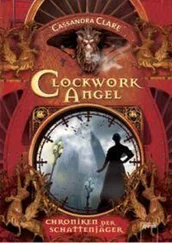Before the start of that class, if you’d sat me in front of an easel and given me a brush and asked me to paint my ideal of womanhood—and assuming I could actually draw or paint, which I couldn’t and can’t—I’d have put on the canvas some anatomically impossible creature composed of masses of tumbling blonde hair, breasts that strained at a skimpily revealing garment and that demanded to be called not “breasts” but “tits,” lips that pouted like a baseball mitt, pants that seemed to have been sprayed on and whose zipper was beginning slowly to unpeel its two halves, and eyes of purest blue that, with stark animal lust and yet a virginal romantic eloquence, spoke the plain and simple message: “John Sudmore, you paragon among superstuds, there is nothing in the world that I desire more than to get hot and heavy with you in the back of a Merc.” I had never in fact met a girl who even remotely resembled my paradigm, but I knew that somewhere she must exist. She was probably called Elektra, although Tabitha would do, or… To be honest, I wasn’t much concerned about the name so long as she was someone all the other guys would be insanely jealous about.
Studying Justine rather than quadratic equations, however, I realized I never would meet Elektra or Tabitha. More than this: I didn’t want to any more. It wasn’t that my fifteen-year-old self was instantly enamoured of my new classmate—not at all, I don’t think—but that for the first time I began to understand there was more to the attractiveness of girls than physical stereotypes and availability, more than sex or the apparent promise of it.
Justine’s hair wasn’t a froth of gold. It was straight, quite long, and its colour was either mousy or bronze depending on how the sunlight caught it. She used her left hand, always her left, to push back her hair behind her prettily shaped ears whenever it fell forward—something it did often—over her cheek, which had the faintest down of transparent, cobweb-fine hairs on it. Her fingers were slender, the nails raggedly chewed. Her nose was quite thin, and a little too long. Her eyes were brown, and when she glanced up at me to catch me hastily looking away I could see they were lit by intelligence—a quality whose possibility had never even entered my head during my secret masturbatory sessions with the specter of Elektra or Tabitha. Her mouth was small, her lips thin. So fascinated was I by the discovery that, even though she was so far from my template, she nevertheless drew me, that I didn’t notice how far her breasts pushed out the front of her blouse, although I was well aware they were there .
And she was easy to smile at, and to talk to, as we gathered up our books.
When the lunch break arrived she cut through the crowds of other kids to stick out her hand.
“Hi,” she said. “I’m Jus. If you’re not eating your sandwiches with anyone else…?”
“John,” I said, moving over on the low wall even though there was no one else for yards around. We knew each other’s names, of course, from when Mr. Dorrigan had introduced Jus around the class, but it seemed necessary to exchange them personally.
And so we sat and we talked for half an hour or so in the sunshine as we ate, and this time I confess I did check out the size of her breasts (small but definitely in attendance, so far as I could make out through the blouse and the bra, my perceptions heightened to X-ray status by the fact that I was fifteen, male and omniscient) even though they didn’t seem especially significant by comparison with the sound of her voice, the animation of her face, the laughter in her eyes, her unassumed articulacy.
We were born to be friends. We both knew it. The Australian Aborigines have the traditional belief that a complete human being comprises two parts that are split before birth, that we spend our lives seeking the other part to make ourselves whole again, and that only the lucky succeed in doing so. Jus and I recognized, only a minute or two into that half-hour, that we were among the lucky.
The curious thing is that I can’t now remember much of what we talked about during this most important half-hour of my life beyond the mere data of our existences: our names, our family members, our potted histories. I know we covered our hopes and dreams as well, but the details of what we said then are lost to me. It was as if neither of us had to make a conscious effort to remember them because we knew them all already. This wasn’t an exploratory conversation: it was just a passage of reminder, a reassurance that nothing had changed since the last time.
* * *
We were, of course, inseparable after that, we two halves of the same person: all through school and beyond. Yet what we’d probably both assumed from the outset would be the route-map of our future wasn’t followed by the reality. I know that I expected after that first lunch together that we’d travel along the familiar pathways: sweethearts, lovers, marriage. This wasn’t the way it went, though, over the years. Oh, sure, there was so much physical rightness between the two of us you almost felt it was a bubble around us you could tap your fingers on; and we could hardly go out on so many dates together, or be visiting so often in each other’s homes, or go on so many long hikes just the two of us, without there having been some reasonably steamy sessions—kissing, hugging, touching. Her breasts proved indeed to be small, two delicious little apples, so much prettier than any I ever saw in skin mags—which I never in fact got much into, although there were always plenty around at school—or at the movies. But somehow all our love and our passion never developed into full-scale sex; the occasional voyages of discovery we made together were just that—two dear friends helping each other out by sharing what they didn’t have in common so they’d both know what to expect when it was some stranger’s body they were doing the actual sex thing with.
It was one of the few matters—perhaps the only one, now that I think on it—about which we disagreed. I was as if I’d been born with the knowledge that we’d be lifelong lovers; Jus was as if we’d certainly be together all our lives long, yes, but that what we had between us, the unity, transcended and perhaps even obviated our being lovers at all. “I can’t make love to you, John,” she said more than once. “It’d be like having sex with my brother, or—no, I got that wrong: with myself .”
I agreed with her that the thought of making love with her brother David was pretty horrendous—whiny, stupid, probably liked pulling the wings off flies; not really surprising he was so successful in later life. But that didn’t stop me from pressing my case. We were made for each other. It was inevitable. Why waste time on others, or even just waiting in celibacy? Why not cut straight to the chase? Accept this glorious gift we’d been given, and rejoice in it?
None of my arguments ever prevailed. In a way it didn’t matter; in a way it did. Our love for each other was unaffected. We were still Jus and John, Jusandjohn, Jusnjohn, Jusjohn, the one person with the two different names, the two independently mobile halves of a single organism.
I thought one of the real problems, the real reasons for her resistance, was that her parents approved of me.
And approve of me they certainly did. They were nice people. David Sr. was no conversationalist, having little interest outside stocks and sports, the former for the weekdays and the latter for the weekends and public holidays, all carefully compartmentalized; but he had a geniality that made his tediousness easy to tolerate. Ellen-Anne, her mother—Ellie, as I was soon taught to call her—was quite different. Mercurial, very lovely in a minxy way, sometimes waspish, always curious for new knowledge, always alert for anything of interest, she was one of the most attractive women I’ve ever known. I once in a moment of stark idiocy confessed to Jus that several times, when her mother had casually brushed against me, I’d found myself with an incipient hard-on—an awful thing to admit about somebody’s mother , for chrissake. Jus only laughed; her mother, she said, had that effect on men.
Читать дальше












